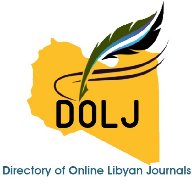Artificial Intelligence Forms in Management Accounting
Keywords:
artificial intelligence, Chat GPT, Google Bard, management accountingAbstract
This study is an exploratory study that reveals the accuracy of artificial intelligence forms in order to answer managerial accounting questions through the use of Google Bard and Chat GPT forms. it also determines the degree of difference in accuracy between the forms used. The experimental method was used through the use of 35 questions in 7 axes related to management accounting in the year 2023. The questions used consist of 21 questions about identifying the correct and incorrect statements, and 14 questions about selecting the correct option from multiple options. The experimental study revealed a set of results, the most important of which are: Artificial intelligence is one of the most important means that accountants will need to learn and acquire in order to maintain the role of accountants in the accounting profession, and despite the great development in the field of artificial intelligence, it has a degree of risk at The present time, especially with regard to the accuracy of the results that are reached through it, and the forms of artificial intelligence used are considered a huge technological revolution, and it is still in the process of developing continuously, and this may increase the concern of accountants that these forms will be a substitute for them and they will lose their jobs in the future. regarding the results of the practical study, it showed that the total accuracy rate for all management accounting axes that were reached as a result of the use of artificial intelligence applications in management accounting ranged between 54% and 83%, and this means that these forms cannot be used and relied upon at the present time. The study also showed that the Google Bard form is 28% more accurate than the Chat GPT form, where the Google Bard form obtains an accuracy of 83%, while the Chat GPT form obtains an accuracy of 54%.
References
Andreu-Perez, J., Deligianni, F., Ravi, D., & Yang, G. Z. (2018). Artificial intelligence and robotics. arXiv preprint arXiv:1803.10813.
Bommarito II, M., & Katz, D. M. (2022). GPT Takes the Bar Exam. arXiv preprint arXiv:2212.14402.
Bommarito, J., Bommarito, M., Katz, D. M., & Katz, J. (2023). GPT as Knowledge Worker: A Zero-Shot Evaluation of (AI) CPA Capabilities. arXiv preprint arXiv:2301.04408.
Greenman, Cindy (2017). Exploring the Impact of Artificial Intelligence on the Accounting Profession, Journal of Research in Business, Economics and Management, Vol. 8, Issue 3.
Kamble, R., & Shah, D. (2018). Applications of artificial intelligence in human life. International Journal of Research–Granthaalayah, 6(6), 178-188.
Li, Z., & Li Zh. (2018). The Impact of Artificial Intelligence on Accounting, Advances in Social Science, Education and Humanities Research (ASSEHR), vol. 181, 4th International Conference on Social Science and Higher Education
Shrestha, Y. R., Ben-Menahem, S. M., & von Krogh, G. (2019). Organizational Decision-Making Structures in the Age of Artificial Intelligence. California Management Review, 66–84. https://doi.org/10.1177/0008125619862257
Pilipczuk, O. (2020). Toward cognitive management accounting. Sustainability (Switzerland), 12(12).
https://doi.org/10.3390/su12125108
Petkov, R. (2020). Artificial intelligence (Ai) and the accounting function—a revisit and a new perspective for developing framework. Journal of Emerging Technologies in Accounting, 17(1), 99–105. https://doi.org/10.2308/jeta-52648



























